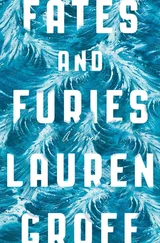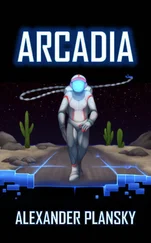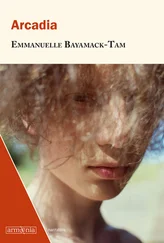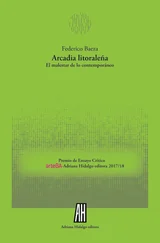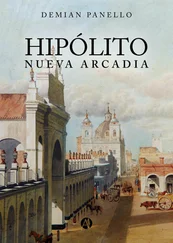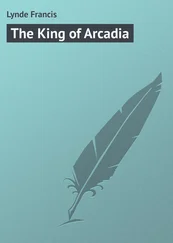Every limit, a wise woman once wrote, is a beginning as well as an ending.
Grete climbs behind him, holding him with her thin length. But she is made of flight and burrow, Helle and Hannah both, and leaves him to run when twilight falls.
Luisa comes in and, weeping, kisses him goodbye.
Jincy comes in, bringing the twins. They sleep against him, and Jincy sleeps in the chair, her face lined in the moonlight, mouth open, black as a cave.
Dylan comes in; Cole comes in; Bit’s department chair comes in.
Ellis comes in, the hardcover book splayed in her hands like a bird poised for flight. She stays and stays. She whispers in his ear.
The night comes in, Grete comes in, Astrid comes in.
Glory comes in with muffins, saying something over him in her guttural language, a prayer, perhaps.
In the window, the moon comes in.
On her e-reader, Grete holds Yoko, who was at last allowed to go home to Japan; the girl plays her violin but so poorly Grete snorts and turns her off.
Astrid comes in with avocados and mushroom soup.
Ellis comes in, puts his head on her lap, brushes his temples with her cool hands, murmurs.
Grete comes in; Grete comes in; Grete comes in. With a new song and a sunwarmed tomato, with applesauce and ice water, with a scrimshaw, brittle and yellow, Hannah’s face endlessly carved in the bone. Grete, like water, like the world, will always let herself in.
The first thing is the tea. The stun of rosehip lets the ghosts enter, the cookies flavored with anise, the sighing cushion of the white dog, the close smoky cottage of his own story.
Next, the stars brief in a window between the maple branches. From under a rocking chair, a mouse. It prays into its pink hands, watching Bit, it smoothes its fat haunches like a housewife in a new dress. Bit laughs and the noise scares them both, and the mouse skitters off. Bit is lonely when it is gone.
Soon the page of a book can stay cohesive in the eyes; one sentence can lead to the next. He can crack a paragraph and eat it. Now a story. Now a novel, one full life enclosed in covers.
They are in the room when he wakes again.
It’s been a week, Dad, Grete says, her voice tight with urgency.
Time to get up, says Ellis from the chair. She is rumpled; Otto sleeps under her feet.
Astrid, in the doorway, her own column of light.
Dad, says Grete. Please.
It is an effort like digging himself out from a mound of dirt. But he sits.
It is a cool morning. The spring has ended, Bit sees. Grete leaves her e-reader out for him to use, and he finds that the disease has tiptoed backward. Quarantine is over: three quarters of a million dead, only thirty thousand in the United States. Most deaths have been contained in a few areas, the city mostly. The president praises technology, the ability to track the disease and make decisions; he comes onto the e-reader, blue thumbprints under his eyes, and says, Without technology, the pandemic would have been a disaster of proportions never before seen on this planet. We must be grateful. Bit is.
Grete is rosy with health and tan from the sun. Home, she says, a flash of yearning in her face. He sees how the brownstone they bought ten years ago is to Grete what Arcadia is to him. Soon, they will leave the furniture where it sits in the Green house, the clothes neat in their closets. They will seal the windows against drafts and close the curtains. They will secure doors that have locks as afterthoughts: Titus’s, Midge’s, Scott and Lisa’s, the Green house, quieted of its solar clicks. They will load the car. Ellis is coming for a week to help them resettle. There is little of Helle’s in the brownstone: a chair, the same kitchen table, the same bed. He imagines thin brown Ellis filling those places, and is surprised to feel no pain.
He will miss this quiet full of noise: the nighthawks, the way the woods breathe, the things moving unsuspected through the dark. But he will take with him the canisters full of blasted images and have the pleasure of living them again. They are not nothing, the memories.
The night before they go, he stays awake, watching the subtle seep and draw of the moon. In the dark, he scans Abe and Hannah’s bookshelves until he finds what he’s been looking for. The book is smaller than he remembered, the edges flaking like pastry dough under his fingers. But the color plates surprise him: they are so startling, so excessively beautiful. He hadn’t remembered such beauty.
For hours in the sleeping house, he reads the old stories until they blend together. Then he puts down the book. When he turns out the light, the moon seizes its brightness again in the window. The stories themselves aren’t what moves him now. They are sturdy wooden boxes, their worth less in what they are than in what they can be made to hold. What moves him are the shadowy people behind the stories, the workers weary from their days, gathering at night in front of a comforting bit of fire, the milk churned, the chickens sleeping, the babies lulled by rocking, the listeners’ own bones allowed to rest, at last, in their chairs. The world then was no less terrifying than it is now, with our nightmares of bombs and disease and technological warfare. Anything held the ability to set off fear: a nail dropped in the hay, wolves circling at the edge of the woods, the newest baby in the tired womb. His heart, in the night-struck house of his parents, responds to those once-upon-a-time people, anonymous in the shadows, the faith it took them to come together and rest and listen through the gruesomeness, their patience for the ever after, happy or not.
Bit moves through the house, turning out the lights that Grete thoughtlessly left burning. And like that he lets the darkness in to take its place, where it belongs.
The early June woods simmer. When Bit and Grete lace up their boots, Ellis starts to put hers on, too, but something in Bit’s face makes her sit back down on the porch steps with a book instead. Take Otto, she says. He’ll dream of this walk when he’s a city dog. Bit stays to look at the way the sun off the page shines on her face. I’ll be here when you get back, she laughs into her book. Don’t worry. In gratitude, he doubles back to kiss her on the soft part in her hair. By midmorning the birds grow heavy and watch the world with their beaks cracked, panting from the coolest clefts of the branches. Under such cheery light it is impossible to see the forest as he had so long ago when he was a lost child, grasping and bitter and ready to gobble him, the twigs turned fingernails, the roots sinuously rising from the ground to pull him in.
Grete tells him long, fantastical tales of the kids at the school. She had finished the year with a kind of shuddery relief: now she turns others grotesque to strip them of their terror. The girls are blades in female form; the boys lurch through the halls as rustic as bears. The teachers are gobbling amoebas, greedy for what they can’t understand. Otto races back, his underbelly caked with mud, and squeezes his body between their legs, and races off again.
They come to the place Bit has avoided all these years and climb a storm-felled oak to find the path. Here is the island of trees between two snakes that once were knee-deep streams. Here is the house. The old walls are still standing. The roof has fallen in: a tree grows from the heart of Verda’s cottage as if it were a vast stone planter. One window is breathtakingly intact. The cherries by the doorstep have spawned an orchard, and last year’s pits gravel the ground. When Bit pushes open the door, it swings easily, true in its frame. Inside, the house is forest. The floor is dirt and skittering leaves; the beams have returned to mossy logs. They sit and unpack their lunch, the dog panting at their feet, and he tells his daughter of Verda.
Читать дальше
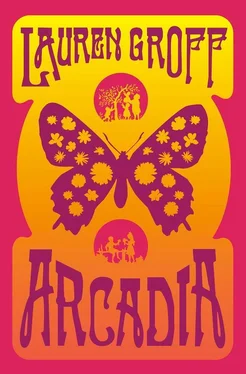
![Andrea Höst - In Arcadia [Touchstone - Extras]](/books/56405/andrea-host-in-arcadia-touchstone-extras-thumb.webp)

